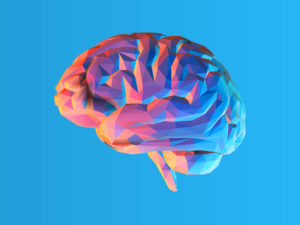Pick’s Disease
 Pick’s disease is a rare condition that causes progressive and irreversible dementia. Unlike Alzheimer’s disease, Pick’s disease only affects certain parts of the brain. It is known as frontotemporal dementia (FTD) because it affects the frontal and temporal lobes of the brain. Our frontal lobes control our ability to plan, organize, make sound judgement, control our behavior and emotion, recall information and multi task. Our temporal lobes are responsible for our use of language and our emotional responses. In Pick’s disease an abnormal amount or type of protein collects in the nerve cells of the brain. This specifically occurs in the frontal and temporal lobes. This causes brain tissue to shrink. As a result, a person with Pick’s disease shows a slow progressive deterioration of behavior, personality and/or language. The exact cause is unknown. Scientists suspect a genetic link, thus making it a hereditary disorder.
Pick’s disease is a rare condition that causes progressive and irreversible dementia. Unlike Alzheimer’s disease, Pick’s disease only affects certain parts of the brain. It is known as frontotemporal dementia (FTD) because it affects the frontal and temporal lobes of the brain. Our frontal lobes control our ability to plan, organize, make sound judgement, control our behavior and emotion, recall information and multi task. Our temporal lobes are responsible for our use of language and our emotional responses. In Pick’s disease an abnormal amount or type of protein collects in the nerve cells of the brain. This specifically occurs in the frontal and temporal lobes. This causes brain tissue to shrink. As a result, a person with Pick’s disease shows a slow progressive deterioration of behavior, personality and/or language. The exact cause is unknown. Scientists suspect a genetic link, thus making it a hereditary disorder.
What are the Symptoms of Pick’s Disease?
Symptoms of Pick’s disease vary, but behavior and personality changes are the primary early signs. Behavioral symptoms may include moodiness, compulsive or inappropriate behavior, withdrawal, disinterest in previously enjoyed activities, poor hygiene, and poor social skills. Cognitive and language deficits will also appear. These include: memory loss, deficits in speaking, understanding, reading and writing, remembering familiar names/words, and echoing what has been said. Complete loss of speech may eventually occur. Physical changes may include weakness, muscle rigidity, difficulty moving and urinary incontinence.
Pick’s disease is diagnosed through a thorough medical history, brain imaging, physical and neurological assessments, diagnostic tests, and information provided by family members. Assessments may include scans such as MRI, CT, PET, and evaluation by speech pathology, occupational therapy and physical therapy.
There are no known treatments to cure or stop the progression of this disease. Medical management focuses on control of symptoms associated with the disease, with the goal of maximizing function as long as possible. It is possible to use medication to control symptoms of mood or behavior.
How Can Speech Therapy Help?
Speech therapy is often of benefit in the early stages of the disease. Aphasia is an early symptom of Pick’s disease. It is characterized by difficulty understanding words/sentences, retrieving words, writing, or producing speech sounds. Speech therapy can improve ability to communicate. It will help someone with this diagnosis maintain their highest level of function as long as possible. Speech therapy will also focus on teaching family members to communicate with their loved one as the disease progresses.
Although Pick’s disease is progressive, a combination of medical management and speech therapy will help a patient maintain his/her cognitive function and ability to communicate as long as possible. Accessing services early in the disease process is essential. Click here to learn more about this disease. Or, call MOSAIC today to set up a speech evaluation.
